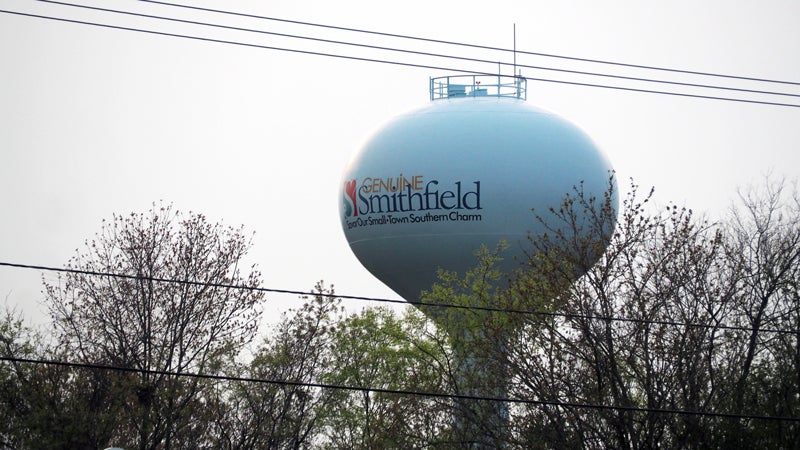Preliminary Smithfield budget may include water, sewer, trash fee increases
Published 6:11 pm Thursday, April 4, 2024

- The town of Smithfield is considering a water rate increase in its draft 2024-25 budget.
Smithfield residents could find themselves paying more for garbage pickup and water and sewer this summer.
Smithfield Town Manager Michael Stallings, on March 25, briefed the Town Council on his preliminary budget for the 2024-25 fiscal year, which begins July 1.
Last year, the council adopted a $10.2 million budget. Stallings said he planned to release a final draft of his 2024-25 budget May 1 before it goes to the council for a public hearing and vote.
Stallings said the preliminary draft he’s considering presenting to the council doesn’t include any increase in the town’s real estate or car tax rates but calls for a roughly 25-cent increase in the town’s water rate.
According to the town’s website, Smithfield residents pay a bimonthly $11.47 meter fee plus the current $6.75 rate per 1,000 gallons. Stallings said the cost of chemicals and equipment used at the town’s reverse osmosis water treatment plant on South Church Street has gone up since the rate was last adjusted.
“We have been doing small incremental increases so that we can keep up with inflationary cost,” Stallings said.
Even with a 25-cent or 3.6% increase, the town’s rate would remain well below Isle of Wight County’s, which charges a $33.14 bimonthly meter charge plus $12.35 per 1,000 gallons.
The town’s sewer rate, which is based on water usage, may also rise by 25 cents or 6%. The rate equates to $3.74 per 1,000 gallons plus a bimonthly sewer compliance fee of $18.62 according to the town’s website.
HRUBS, the utility billing service arm of the Hampton Roads Sanitation District, determines its wastewater treatment rates annually.
Stallings said Bay Disposal, the town’s contractor for curbside garbage pickup, is proposing a roughly 6% increase in its rate. Therefore, he’s considering an equivalent increase to the town’s trash fee.
Smithfield enacted a monthly $9.70 trash pickup fee in 2020 and reduced the fee to the current $6.01 in 2021 when the town discontinued curbside recycling.
“Currently, we do not recoup everything that we spend,” Stallings told the Town Council.
Stallings said the fee brings in roughly $72 per resident per year, though the town is spending $82 per resident per year for its curbside pickup contract with Bay Disposal.
The council voted in February to set a rate of 16 cents per $100 in assessed value for its 2024 real estate tax, which Stalings anticipates will remain unchanged for 2024-25.
The 2024 real estate bills, which will be the first to use the county’s 2023 reassessed property values, are slated to be mailed to residents this month.
The reassessments showed an average 34% increase countywide in the valuation of single-family homes. As such, the April bills will likely be higher than what homeowners paid in 2023 under the town’s 19-cent rate and 2019 assessments.
Stallings said he’s proposing a minimum $15-per-hour wage for town employees.
“We only have a few number of people that are under that,” Stallings said.
Currently, the lowest-paid town employees earn $12.50 per hour. Gov. Glenn Youngkin, on March 28, vetoed a General Assembly bill that would have raised the statewide minimum hourly wage to $13.50 starting Jan. 1, 2025, and to $15 on Jan. 1, 2026.
All other employees would receive a roughly 4% increase for 2024-25 with a minimum $1,000 increase, Stallings said.
Editor’s note: This story was updated at 2:42 p.m. on April 9 to correct the town’s current water rate, which was misstated at the March 25 meeting.





